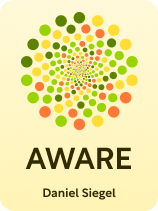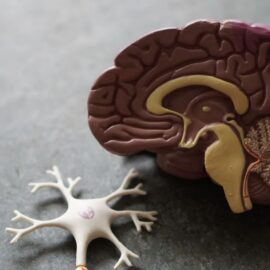

This article is an excerpt from the Shortform book guide to "Aware" by Daniel Siegel. Shortform has the world's best summaries and analyses of books you should be reading.
Like this article? Sign up for a free trial here.
How can living in the present moment enhance your life? What physical benefits might you experience from expanding your awareness?
In his book Aware, Dan Siegel discusses the transformative power of awareness in your daily life. From deepening connections to improving mental flexibility, the benefits of awareness extend far beyond the mind.
Read on to unlock the secrets of a more conscious and fulfilling life.
The Benefits of Awareness
According to Siegel, awareness is your perception of your experience of whatever is happening around and within you in the present moment. He identifies several benefits of awareness, asserting that people are happiest when living in the present moment. When you live more presently, you can cultivate deeper connections to yourself, others, and the world, and you’ll experience greater feelings of equanimity, peace, and meaning.
(Shortform note: While other psychology experts agree that living in the present moment has benefits, they argue that it isn’t the sole path to happiness. They explain that sometimes, reflecting on the past or planning for the future can be valuable, as our ability to learn from experiences and anticipate outcomes helps us grow and make better decisions. Additionally, distracting yourself from moments of physical or mental discomfort can be a healthy and necessary coping strategy when done in moderation. Ultimately, a balance between presence, reflection, and anticipation might be more beneficial than strictly focusing on the present.)
Additionally, strengthening awareness fosters mental flexibility, enabling you to be more adaptable and resilient in facing life’s challenges. Present-focused awareness allows for more thoughtful responses to experiences rather than automatic reactions. This healthy, flexible mind allows for comfort with uncertainty, moves beyond black-and-white thinking, and approaches difficult situations with greater ease. Expanded awareness can bring you more freedom, richness, and joy in life.
(Shortform note: Other psychology experts agree that having mental flexibility (also known as cognitive or psychological flexibility) means you’re adaptable, live more easily in the present moment, and are resilient through adversity. They add that when you have mental flexibility, you tend to make decisions based on long-term goals that align with your values rather than short-term goals, which may not. This implies that people with mental flexibility can defer gratification in the moment for a greater benefit in the future.)
According to Siegel, research suggests that expanding your awareness not only brings mental and cognitive benefits, but can also yield physical benefits. By increasing your awareness, you can enhance your immune system, fortify the processes in your body that repair DNA, reduce stress responses, and improve your cholesterol levels, blood pressure, and heart health.
| How Meditation Changes Your Physiology Research has indeed shown that meditation practices like the Wheel meditation have positive effects on your physical health, but Siegel doesn’t explicitly discuss the details of healthy changes that can happen in your body. According to scientists, meditation has been found to affect the immune system by decreasing inflammatory molecules released by cells in response to injury, infection, and increasing your immune cells. It has also been shown to increase the lifespan of parts of your DNA, potentially delaying the aging process. In your cardiovascular system, mediation studies show significant reductions in diastolic blood pressure and improvements in inflammatory gene expression. Researchers speculate that meditation may produce these positive physical effects because of the interconnection between the mind and body: Meditation improves the functioning of the brain, relieves stress, depression, and anxiety, and supports recovery from trauma. These positive shifts in your mood, thoughts, and emotions may create a downstream effect on your physiological processes. |

———End of Preview———
Like what you just read? Read the rest of the world's best book summary and analysis of Daniel Siegel's "Aware" at Shortform.
Here's what you'll find in our full Aware summary:
- The benefits of increasing your awareness of yourself and the world
- How to use a meditation tool called the Wheel of Awareness
- How the Wheel of Awareness improves your bodily functions






